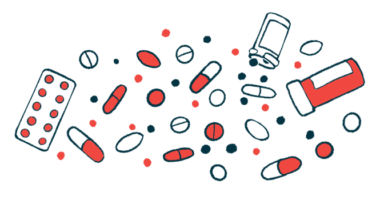6-part special podcast series aims to raise awareness of Meth-PAH
With Sept. 16 launch, Phaware to focus on methamphetamine impact

Phaware, a global advocacy organization, is launching a special podcast series to raise awareness of pulmonary arterial hypertension (PAH) caused by the use of methamphetamine, a stimulant drug known for its psychoactive effects.
Methamphetamine-induced PAH is now known simply as Meth-PAH.
The six-episode series, part of the “I’m Aware That I’m Rare” podcast, premieres Sept. 16 and runs through Oct. 21 — leading up to Pulmonary Hypertension Awareness Month in November.
Sponsored by Johnson & Johnson, the series brings together patients and leading physicians to address what the nonprofit, in a Phaware press release, calls “one of the most devastating and underdiscussed drivers of pulmonary hypertension in America today.”
Steve Van Wormer, president of Phaware and executive producer of the podcast, said “these episodes represent one of the most important and overdue conversations we’ve had on the show.”
“By focusing on both the science and the stories of Meth-PAH, we hope to drive compassion, erase negative perceptions, and accelerate solutions for patients who are too often overlooked and ignored,” Van Wormer said.
Pulmonary hypertension (PH) refers to high blood pressure in the blood vessels, called the pulmonary arteries, that pass through the lungs. Common symptoms are shortness of breath, dizziness or fainting, chest pain, and fatigue. It can lead to heart failure in later life.
PAH is marked by the narrowing of the pulmonary arteries, which restricts blood flow across the lungs and drives up blood pressure. The condition has many potential causes, including heart defects, viral infections, connective tissue disorders, or chronic liver disease. In some cases, there’s no identifiable cause, and it’s referred to as idiopathic PAH.
Methamphetamine mostly used as recreational or performance-enhancing drug
Certain medicines are also known to trigger PAH, such as methamphetamine, colloquially known as meth. It’s approved in the U.S. to treat attention-deficit hyperactivity disorder, or ADHD. However, because of its stimulant and psychoactive properties, methamphetamine is primarily used as a recreational or performance-enhancing drug, which comes with a high risk of addiction.
While exactly how methamphetamine triggers PAH is still unclear, it’s thought to impair pulmonary vasoconstriction and vasodilation, or how the body narrows or widens blood vessels to control blood flow. Eventually, these processes alter the structure of blood vessels, resulting in PAH.
A recent study showed that people with methamphetamine-related PAH have worse heart health and poorer exercise capacity than those with other forms of PAH.

The “I’m Aware that I’m Rare” podcast series was created by Phaware. (Courtesy of Phaware)
The six-part special podcast series aims to tackle “the stigma, the science, and survival” tied to this steadily-rising cause of PAH in the U.S., according to the release. The conversations will be focused on addiction, neglect, research, and resilience.
Starting on Sept. 16, new episodes will be released every Tuesday on all major platforms, including Apple Podcasts, Spotify, and YouTube Music. Each episode will feature a different Meth-PAH topic, with guests including patients and medical professionals.
The series starts with “The Rising Crisis of Meth-Associated PH,” where John Kingrey, MD, the director of the INTEGRIS Health Pulmonary Hypertension Center of Oklahoma, will discuss the growing problem of methamphetamine-related PAH and address its misconceptions. He also will “[call] for compassionate care and research,” according to the nonprofit.
New episode of podcast series to drop each week
A week later, on Sept. 23, “The Hidden Epidemic: Meth and PH,” will feature Vinicio de Jesus Perez, MD, a professor of medicine at Stanford School of Medicine in California. de Jesus Perez will review the shifting demographics of methamphetamine use and the challenges of treating addiction in cardiopulmonary care.
Then, on Sept. 30, the episode “How Stigma Blocks Meth-PAH Treatment and How to Stop It” will have Peter Leary, MD, PhD, a physician in pulmonary and respiratory disease at the University of Washington. Leary will explain how shame imposed by both society and healthcare providers delays life-saving treatments.
On Oct. 7, Nicholas Kolaitis, MD, a specialist in pulmonary and critical care medicine at the University of California, San Francisco, will discuss how building trust with Meth-PAH patients encourages recovery, research, and transplant. That episode will be titled “The Face of Addiction Isn’t Who You Think It Is.”
On Oct.14, the episode “Treating Meth-Associated PAH Without Judgment” will feature Brandon Jakubowski, MD, a specialist in pulmonary care and assistant professor of internal medicine at the University of Texas Southwestern, who will outline how misdiagnoses and undertreatment keep patients from accessing critical care.
Finally, Anthony Carrasco, a Meth-PAH patient, will discuss his journey from methamphetamine addiction and homelessness to transplant and recovery. That Oct. 21 episode is “How I Survived Meth Addiction, Lung Failure, and Found Purpose.”









